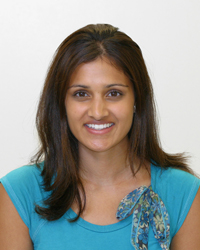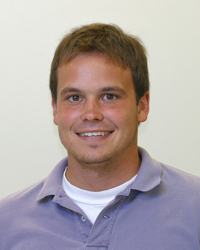 |
Sheela Jayappa |
 |
Brian McIntyre |
 |
Melissa Moultray |
Third-year dental students Sheela Jayappa and Brian McIntyre of Omaha and second-year dental student Melissa Moultray of Lincoln will each receive $1,000 and the opportunity to present their research at the 86th IADR General Session and Exhibition in Toronto in July. The cash awards are meant to help offset the student’s travel costs to the conference.
“Only 50 awards were presented nationally and the UNMC College of Dentistry received three of those awards,” said John Reinhardt, D.D.S., dean of the UNMC College of Dentistry. “This honor demonstrates how our student-faculty research interactions serve as a valuable complement to our clinical and scientific curricula.
“I’m very proud of the students and this experience will be a wonderful milestone in their academic careers that they will remember for the rest of their professional lives.”
Both Jayappa and McIntyre were mentored by Sundaralingam Premaraj, Ph.D., assistant professor in the UNMC College of Dentistry, and did research that looks at how a growth factor called Transforming Growth Factor-beta3 (TFG beta3) could prevent premature fusion of the skull in infants.
This premature fusion is called craniosynostosis and results in an abnormal skull shape, blindness and mental retardation.
“Currently the only treatment for craniosynostosis involves invasive surgery, which is very risky,” Dr. Premaraj said. “In our lab we are investigating the mechanism by which TGF beta3 prevents cranial suture fusion by inducing cell death in bone cells.”
Moutray’s research investigates the mechanisms of tooth development, particularly cell signaling during the development of dentin — the substance that composes the majority of teeth. Her studies have found that in certain cells — called odontoblast cells — a bone protein and growth factor uses several pathways to activate certain genes to facilitate dentin development.
“Her results might shed light into future studies to investigate the therapeutic implication of these molecules in tooth decay by inducing dentin repair and formation,” said her mentor, Ali Nawshad, Ph.D., assistant professor in the UNMC College of Dentistry.